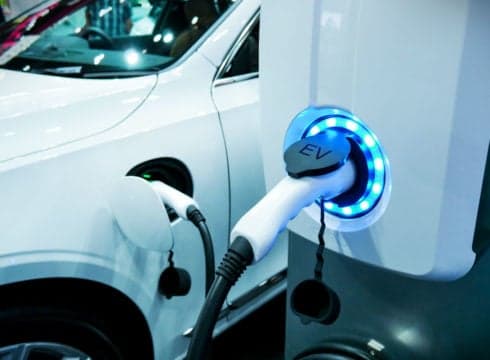The announcement comes two days before the union budget
About 10-15% of import duty will be levied on import of electric vehicles parts
This move is aimed at encouraging companies to assemble electric vehicles in India
Inc42 Daily Brief
Stay Ahead With Daily News & Analysis on India’s Tech & Startup Economy
Just two days before the union budget, the customs duty on electric vehicle components which are imported in a knocked-down or semi knocked down state, have been reduced to 10%-15%, according to the notification issued by the Central Board of Indirect Taxes and Customs which came into effect from today (January 30, 2019).
Prior to this, around 15% to 30% was charged as import duties on electric vehicle components. This reduction of the taxes is aimed at encouraging global automobile companies to assemble electric vehicles in India.
The notification, which was issued on January 29, 2019, said that 10% of import duty will be levied on a knocked down kit which contains necessary components such as disassembled battery pack, motor, motor controller, charger, power control unit, energy monitor contractor, brake system, and electric compressor, which are not mounted on chassis. About 15% of import duty will be levied on the pre-assembled kit.
Citing government sources, an ET report claimed that a 25% import duty will be levied on completely built electric vehicles while a 100% duty will be charged on petrol and diesel run vehicles.
However, the notification also said that customs on Lithium-ion battery packs for mobiles phones have been increased to 20%, double than the current rate.
This announcement comes in after recent reports stated that government-appointed panel which led by cabinet secretary Pradeep Kumar Sinha had proposed lower basic customs duty on the components along with lower GST rates.
In a bid to adapt the electric vehicles, the panel had also proposed different registration rates, exemption from road tax and parking charges for the users.
Though the central government is yet to finalise the electric vehicle policy, it has been reported that it may approve INR 5,500 Cr ($772.7 Mn) outlay for the second phase of the Faster Adoption and Manufacturing of Hybrid and Electric Vehicles (FAME) scheme before March end.
According to reports, as a part of the EV policy, the government is looking to use the GeM (the government e-marketplace) platform to aggregate all vehicle orders from government departments to enable bulk procurement.
In order to achieve the goal of increasing the number of electric vehicles to 30% of electric vehicles among the new vehicles by 2030, the Centre will also be focusing on the deployment of electric buses on the Indian roads as a part of the FAME II scheme. As a part of the FAME II scheme, the government also plans to install about 300 electric vehicle charging stations along the Indian highway by end of 2019.
This month, the Ministry of Housing and Urban Affairs had released new guidelines directing the residential and commercial buildings to allot about 20% of their parking space for electric vehicle charging infrastructure.
{{#name}}{{name}}{{/name}}{{^name}}-{{/name}}
{{#description}}{{description}}...{{/description}}{{^description}}-{{/description}}
Note: We at Inc42 take our ethics very seriously. More information about it can be found here.


